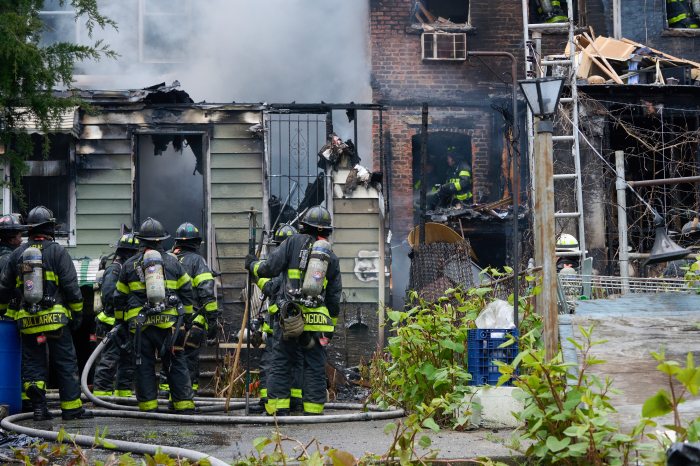One year ago, more than 170,000 residents of Western Queens were left in the dark, both literally and figuratively, as it took Con Ed days to come up with the correct figure for the actual number of people affected by a power outage that disrupted service for up to 10 days in Western Queens.
As temperatures sizzled into the 90s and even over the 100-degree mark, sporadic outages began in parts of Long Island City, Astoria, Woodside and Sunnyside on Monday, July 17, 2006 and Con Ed originally reported 2,000 customers, which equates to roughly 8,000 people without power in the areas. The utility giant stuck with that estimate for three days, while the actual number without power resembled closer to 170,000 residents,
“The Queens blackout ruined businesses and put thousands of New Yorkers through hell for more than a week,” said Congressmember Carolyn Maloney, who represents parts of the affected area. “One year later, it’s clear that Con Ed needs to repair the public’s trust just as much as they need to repair the power grid.”
Meanwhile, Queens Assemblymember Michael Gianaris, who has been one of the most outspoken critics of Con Ed since day one of the outage, said that his constituents got through the awful stretch without power, but not with any help from Con Ed.
“Con Edison is incompetent and completely unaccountable and unresponsive to its customers,” Gianaris said. “We still have businesses that are trying to recover from their losses and some are gone altogether because Con Ed failed to [give adequate reimbursements].”
Gianaris and Maloney both blasted Con Ed for reimbursing businesses only $7,000 for damages, when businesses in the area lost up to $100,000 during the outage.
Phillipe Flory, owner of Ste. Honore Patisserie on Ditmars Boulevard in Astoria, said last year’s blackout cost his business more than $20,000, but the lack of answers and communication from Con Ed only increased his anger.
“We had a blackout for 10 days, and we never got an answer,” he said. “This isn’t the first time” a blackout has occurred, but, he explained that Con Ed had always fixed the problem in a timely fashion.
“ConEd could have taken some responsibility and informed the public about what was going on,” Flory said.
Although Con Ed executives maintain they have made more than $90 million in improvements to the Long Island City network and plan to invest $1.4 billion in the future throughout the city in 2007, the most recent outages in Middle Village and Manhattan in June of this year only increase trepidations about a similar incident occurring.
“During the height of the blackout
[in 2006], Con Ed’s leaders appeared to be even more in the dark than my constituents were,” Maloney said. “I hope that Con Ed executives - most of whom still have their jobs - are working overtime to ensure that blackouts don’t become another rite
of summer.”

































